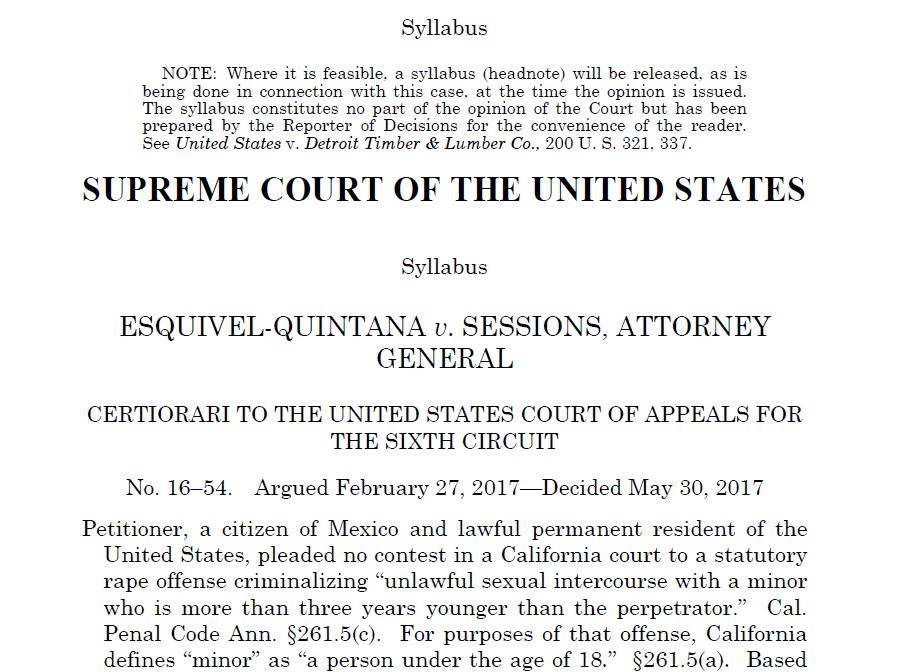Supreme Court Rules in Favor of Michigan Man from Mexico [COURT OPINION]
Unanimous ruling in Michigan case will apply nationally and could prevent some deportations.

A Michigan man, who emigrated from Mexico, should not have been deported because of his conviction of having a sexual relationship with a teenager, the U.S. Supreme Court ruled unanimously today.
Click here to see the ruling.
In an 8-0 decision, the high court said for a crime like Juan Esquivel-Quintana’s to be serious enough for deportation, the minor must be younger 16. States have different laws prescribing the age of consent for such relationships, but the ruling will now apply nationally, says Michael Carlin, Esquivel-Quintana’s Ann Arbor attorney.

“In order for there to be a problem for purposes of immigration — federal immigration law — the younger person needs to be under age 16 in order for the statutory rape conviction to have any negative immigration consequences,” Carlin says.
President Trump’s appointee, Neil Gorsuch, was not on the bench when justices heard the case in February so he did not participate in the decision. Clarence Thomas authored the ruling.
“Most immediately I guess it means that my client is no longer an aggravated felon which means that in due course he should be getting his permanent resident status restored, his green card returned to him and be able to return to the United States,” Carlin says.
Click here to see WDET’s previous reporting on the case.
Esquivel-Quintana was 20 and living legally in California when he dated a 16 year old. Their sexual relationship would be legal in most states and under federal law, but in California the age of consent is 18. Because he was more than three years older than his girlfriend, the case could be – and was — handled as a felony. Esquivel-Quintana was prosecuted and served a 90-day jail sentence, according to court records.
His record was not a problem with immigration authorities because of an earlier appellate court decision in California that applied to people like him in West Coast states. Judges there declared that his specific crime under state law did not qualify for deportation under federal immigration law.
But when Esquivel-Quintana moved to Michigan, the immigration and federal courts saw it differently with an immigration judge in Detroit deciding that his crime in California, for the purposes of immigration law, was an “aggravated felony,” which made him eligible for deportation. Through Carlin, he appealed to the U.S. Supreme Court.
The justices heard arguments on Feb. 27 and issued their ruling today.
Carlin had not yet spoken with Esquivel-Quintana but had talked with his family members in Michigan.
“They’re elated with the news,” he says. “I think (Esquivel-Quintana) certainly will be coming back to the United States and I expect that it will probably be in Michigan.”
Esquivel Quintana Supreme Court Decision by WDET 101.9 FM on Scribd
WDET’s Laura Herberg contributed to reporting this story.
